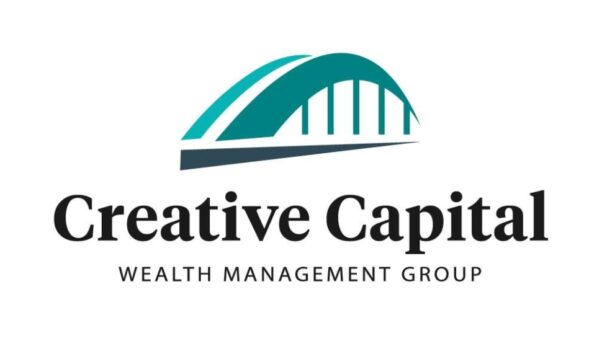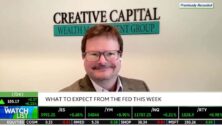Diversify Your Portfolio: The Art Of Selecting Alternative Investments

Let’s face it, the world of alternative investments is big and getting bigger. So what should you look for when selecting an alternative investment?
The fact is that there are four basic ways to invest in assets other than stocks and bonds:
- Private syndication with a small company or even an individual.
- RIA only through an advisor.
- Broker-dealer through an advisor.
- Direct (if you are big enough).
If you can invest directly into the underlying asset (like a $30M distribution center or a $10M private equity sleeve with capital calls), then you are a baller, and I congratulate you. This article will be for the rest of us.
Private syndication is, frankly, the Wild West. There are some good players, but this is also where the least amount of regulation and most of the “bad apples” hang out. Buyer beware: If you do a syndication, do your homework twice. And then check your work.
RIA only is the newest channel for investors via their advisor to gain access to accredited, alternative investments. Not every company goes through this channel, but most do.
Broker-dealer through an advisor is the oldest channel and most of the largest accredited alternative investment companies started in this channel.
Regardless of the channel, there is still an overwhelming number of alternative options out there. So what I look for in our analysis is a few things which I’ll highlight here:
- Legal, ethical, moral, or unfair advantage.
- Economies of scale.
- Access to “off-market” deals.
- Track record of a down cycle in their market (2008, 2020, etc.).
Legal, Ethical, Moral, Unfair Advantage
Let’s take the above one at a time. An example of a legal, ethical, moral, or unfair advantage can be illustrated with QSR restaurants. An example of this is if you’re looking to open your very first franchise in a town where there’s already a franchise owner with 12 successful stores of the same brand.
Ask yourself, do you think the franchise company would give you a shot at opening your number one, or would they let the seasoned franchise owner take on number 13? It’s pretty clear which way they’d lean. It’s like having the odds stacked against you before you even start.
Real-life example: There is a private equity firm that focuses on a few select franchise brands and buys from retiring baby boomer owners who have a store that needs to be updated. The main franchise company loves to work with this firm because they know they will add cap x to the building after the purchase and make it a “new” QSR. They have been so successful that this firm has a right of first refusal in the markets they are focused on. So if you have one of their brands, you are required to offer it to them before you sell it to anyone else. They’ve got quite the protective moat dug out as that’s a pretty good “trench” around your business castle.
Economies of Scale
Some things are better when bigger. There are countless alternative investments that are based on some version of a “roll-up” strategy. If you are unfamiliar with this strategy, here is how that works: An alternative investment firm buys small things. These small things could be small companies, small mobile home parks, or small portions of an oil field — it really doesn’t matter.
They then have some thesis to add value to these (such as adding derricks to the oil field or updating the real estate or franchise). After that, they have a portfolio of “fixed up” small things that they make into a much larger portfolio that creates passive cash flow.
This is exactly the type of “portfolio” the large institutions want to buy. They want to own these portfolios, yet don’t want to spend the resources to buy all the little parts nor do they want to do the “add value” work. Instead, they cut the big check at the end and investors reap the rewards of the boosted ROI of the asset, along with the added aggregation value.
Access to Off-Market Deals
Companies are run by people, so human nature is a factor in determining “how things really work.” This is a fact of life. The company with the better access to information or product wins.
We all have the example of a friend who got a great price on a house because the aunt died, and their kids sold it off-market. Well, that happens in other places too.
Here’s an example: Let’s say you are a large company that ships things to people and you need super large distribution centers so you can send dental floss to my house in one day without shipping. And let’s say you want to build your distribution center, but then get cash out of it to build another one. The best way is to do a sale-lease buyback, and this is something you need to negotiate with the other party. If you and I worked diligently to come up with a fair agreement where I buy your distribution center and lease it back to you for 25 years, you are more likely to engage in future deals with me (the same trusted party) rather than initiating fresh negotiations with a different entity.
Track Record in Down Cycles
If a company is new and has no track record of “doing their thing” during a down cycle for their asset, we don’t even consider it.
As Mike Tyson said, “Everyone has a plan until they get punched in the mouth.” And I need to see the data of what they did when the “stuff” hit the fan. Did they waive their fees, did they do what was right for the investor or themselves? Good companies always put their investors first and know that long-term is the right financial move for them if they want serious money from serious investors.
In today’s expanding landscape of alternative investments, the choices are overwhelming. Whether you’re considering private syndication, RIA channels, broker-dealers, or direct investments, the key is to look for certain critical factors. Ultimately, in the realm of alternative investments, these factors can serve as a basic guide, helping to steer you towards opportunities with the best potential for success and stability.
Read more at Forbes.
___________________
Securities are offered through Arkadios Capital. Member FINRA/SIPC. Advisory services are offered through Creative Capital Wealth Management Group. Creative Capital Wealth Management Group and Arkadios are not affiliated through any ownership. This material was created for educational and informational purposes only and is not intended as tax, legal, or investment advice.
___________________

Frederick Hubler is the Founder and CEO of Creative Capital Wealth Management Group, a retainer-based wealth strategy firm specializing in alternative strategies located in Chester County.
Connect With Your Community
Subscribe for stories that matter!
"*" indicates required fields






























